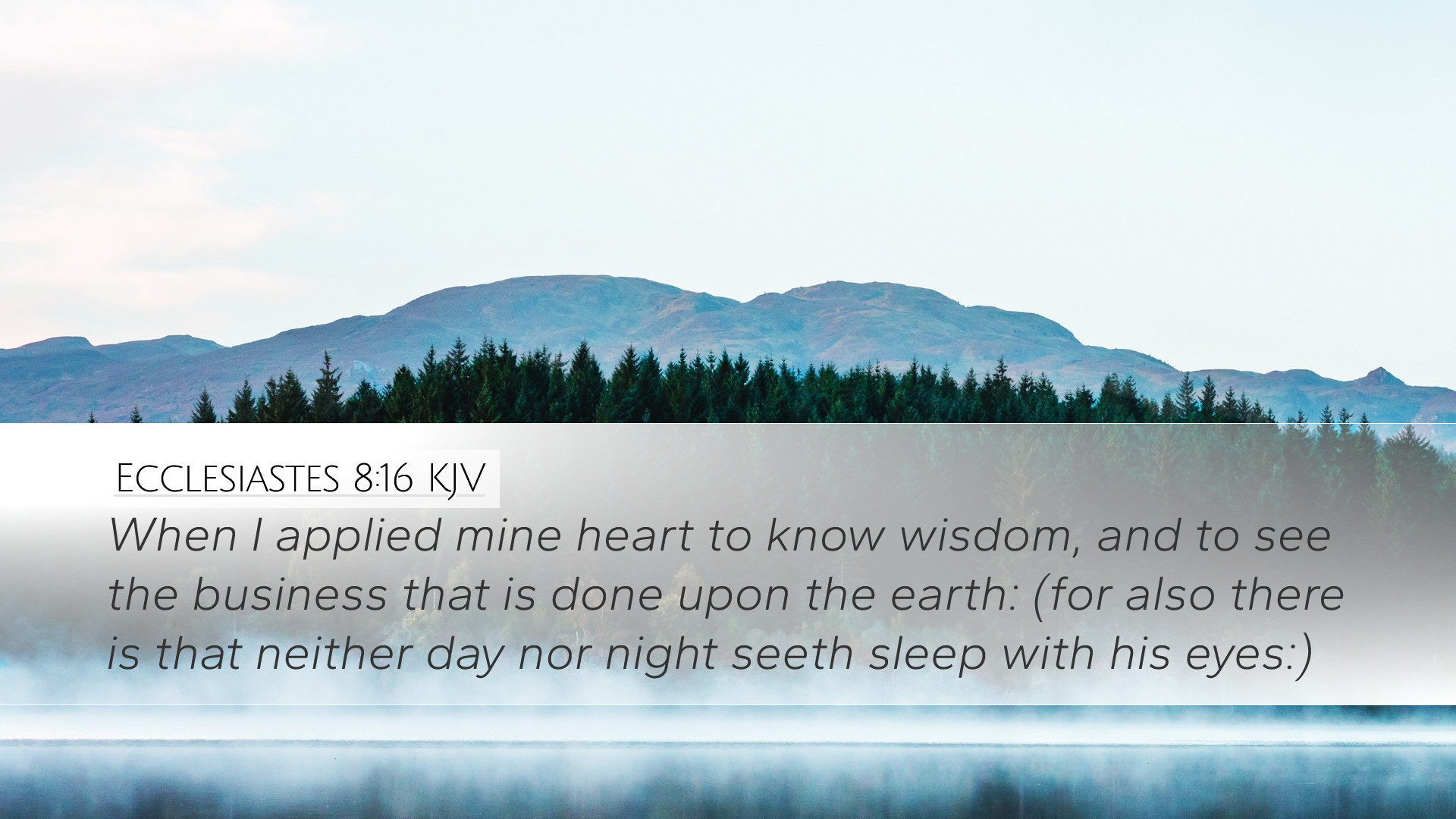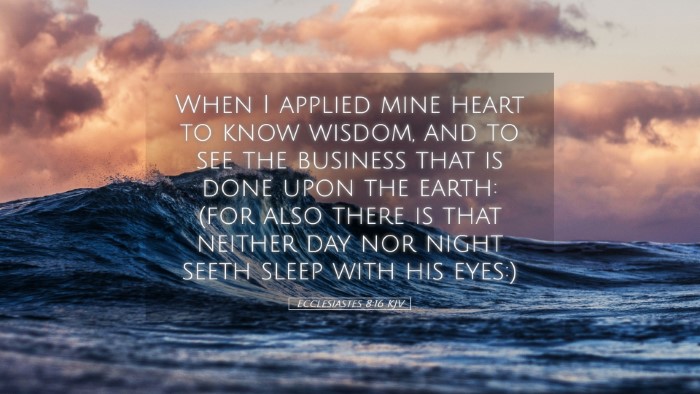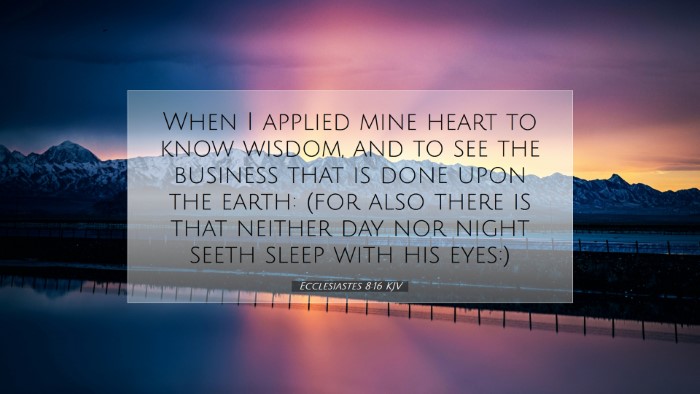Ecclesiastes 8:16 Commentary
Verse: "When I applied my heart to know wisdom, and to see the business that is done upon the earth: for also there is that neither day nor night seeth sleep with his eyes."
Overview
The Book of Ecclesiastes, traditionally attributed to Solomon, grapples with the meaning of life, the pursuit of wisdom, and the existential struggles faced by humanity. In Ecclesiastes 8:16, the Preacher reflects on the search for wisdom and the nature of human toil, particularly the wearisome aspects of life’s endeavors.
Analysis of the Text
Wisdom and the Human Experience
The Preacher emphasizes the importance of applying one’s heart to wisdom. This phrase suggests a total commitment to understanding life’s complexities.
- Matthew Henry: He notes that true wisdom requires more than mere knowledge; it involves an earnest seeking through reflection and experience.
- Albert Barnes: Barnes emphasizes that this quest for wisdom often leads to the recognition of the limits of human understanding, particularly in the realm of life’s futility.
- Adam Clarke: Clarke points out that wisdom should guide our actions and choices, enhancing our ability to navigate life’s challenges.
The Nature of Toil
In observing the activities of humanity, the Preacher acknowledges the relentless nature of human labor. The phrase “neither day nor night seeth sleep with his eyes” illustrates the toil that can consume a person’s life.
- Matthew Henry: He reflects on how relentless labor can lead to exhaustion and despair, suggesting that the pursuit of wisdom can provide respite and perspective.
- Albert Barnes: Barnes expands on this by noting that the incessant nature of human labor often leads one to question the purpose of life itself, prompting an inquiry into the meaning behind daily struggles.
- Adam Clarke: Clarke discusses the implications of sleepless toil, arguing it can reflect an anxious heart, where the search for security leads to an unending cycle of worry and work.
Theological Reflections
Ecclesiastes 8:16 offers rich theological insights into God's sovereignty and the human condition. The Preacher illustrates the contrast between the pursuit of divine wisdom and the futility of human endeavor absent of God.
- Matthew Henry: He emphasizes that true wisdom ultimately leads us to recognize our dependence on God, Who alone understands the full scope of life’s mysteries.
- Albert Barnes: Barnes encourages readers to look beyond their labors, reminding them that fulfillment and true wisdom are found in a relationship with the Creator rather than in secular endeavors.
- Adam Clarke: Clarke also interprets this verse as a call to align one's life with divine purposes, insinuating that a wisdom-seeking heart finds rest in God, alleviating the burdens of worldly toil.
Practical Applications for Today
The insights derived from Ecclesiastes 8:16 resonate with contemporary readers, particularly for pastors, students, and theologians seeking to navigate the complexities of modern life.
- Importance of Reflection: In a world filled with distractions, setting aside time to reflect on wisdom and life’s purpose is essential for spiritual growth.
- Balancing Work and Rest: The verse serves as a reminder to maintain a balance between labor and rest, recognizing that relentless work without purpose can lead to spiritual and physical burnout.
- Seeking God’s Wisdom: In their studies, pastors and scholars should prioritize seeking wisdom that aligns with God’s word, understanding that human knowledge has its limits.
Conclusion
Ecclesiastes 8:16 invites us into a deep exploration of wisdom and human toil, reflecting an age-old quest for understanding amid life’s inevitable struggles. By applying our hearts to know wisdom, we acknowledge our limitations and our dependency on God’s greater wisdom. This pursuit is not merely academic but a profound spiritual journey that shapes our lives and interactions with the world.


